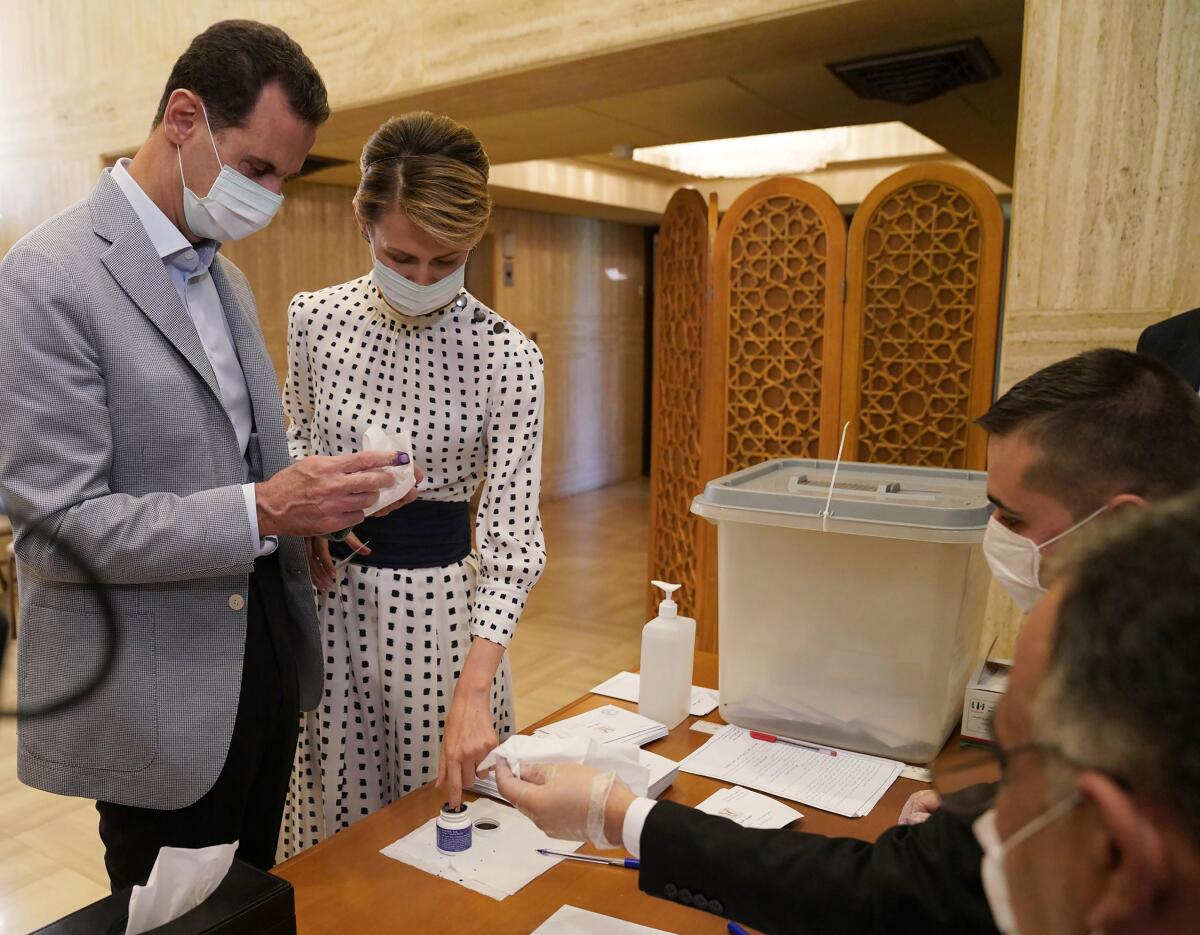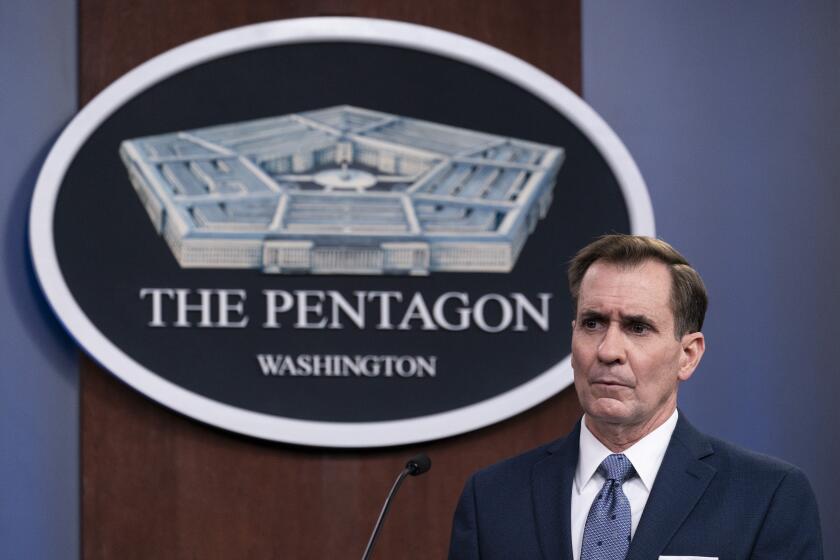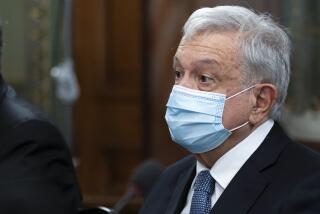Syrian President Bashar Assad and wife test positive for coronavirus

- Share via
DAMASCUS, Syria — Syrian President Bashar Assad and his wife have tested positive for the coronavirus, the president’s office said Monday, with both having only mild symptoms of COVID-19.
In a statement, Assad’s office said the couple took PCR tests after they experienced minor symptoms consistent with COVID-19. The statement said Assad, 55, and his wife, Asma, who is 10 years younger and announced her recovery from breast cancer in 2019, will continue to work from home, where they will self-isolate between two to three weeks.
Both were in “good health and in stable condition,” the statement added.
Syria, which marks 10 years of civil war next week, has recorded nearly 16,000 coronavirus cases in government-held parts of the country, including 1,063 deaths. But the numbers are believed to be much higher because of limited numbers of PCR tests being performed, particularly in areas of northern Syria outside government control.
The pandemic, which has severely tested even developed countries, has been a major challenge for Syria’s healthcare sector, already depleted by years of conflict.
Syria began a vaccination campaign last week amid rising numbers of infection cases, but no details have been given about the process, nor have local journalists been allowed to witness the rollout. The health minister said the government procured the vaccines from a friendly country, which he declined to name.
U.S. airstrike targeting Iranian-backed militants in Syria was meant as a message from President Biden. What message Tehran took away is unclear.
The announcement came days after international and Israeli media reports revealed that Israel paid Russia $1.2 million to provide the Syrian government with coronavirus vaccines. It was reportedly part of a deal that secured the release of an Israeli woman held in Damascus. The terms of the clandestine trade-off negotiated by Moscow remained murky. Damascus denied it happened, and Russia had no comment.
Israeli bankrolling of Syria’s vaccination efforts would be an embarrassment for Assad’s government, which considers Israel its main regional enemy.
It was not immediately clear whether Assad, who has been in power since taking over from his late father in 2000, or any of his family members have been vaccinated.
Syria has been mired in civil war since anti-government protests that began as part of Arab Spring uprisings turned to an insurgency in response to a military crackdown. A decade of fighting has resulted in the death of hundreds of thousands of people and the displacement of millions of others.
More to Read
Sign up for Essential California
The most important California stories and recommendations in your inbox every morning.
You may occasionally receive promotional content from the Los Angeles Times.














